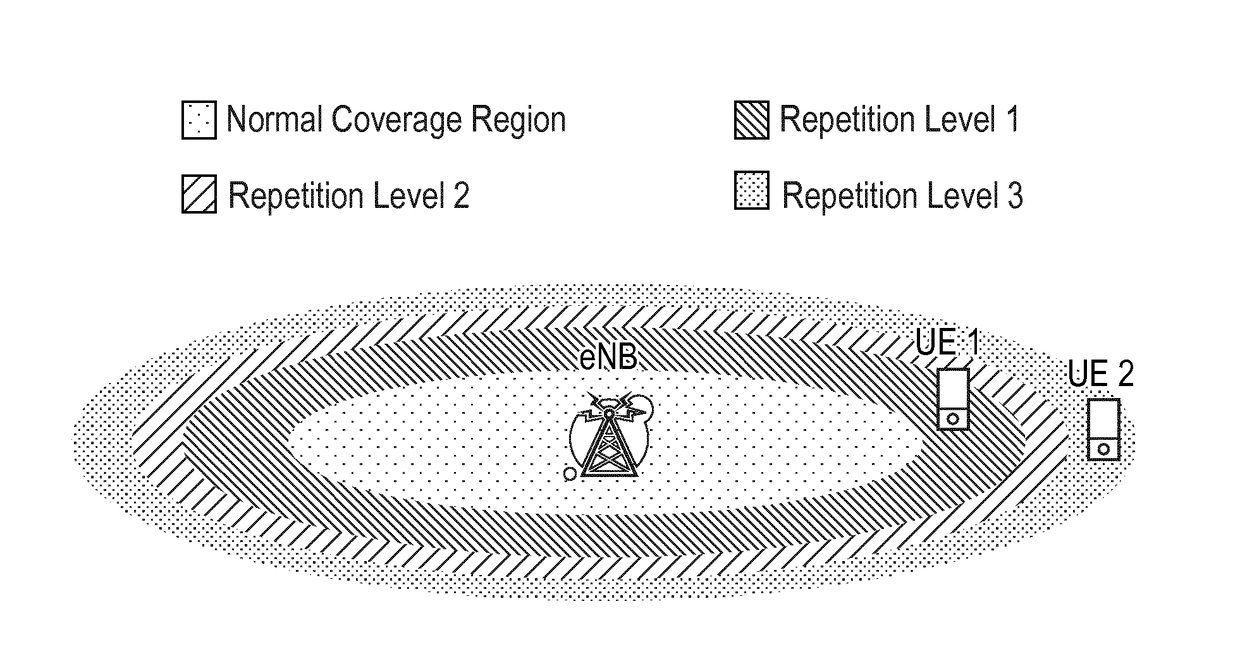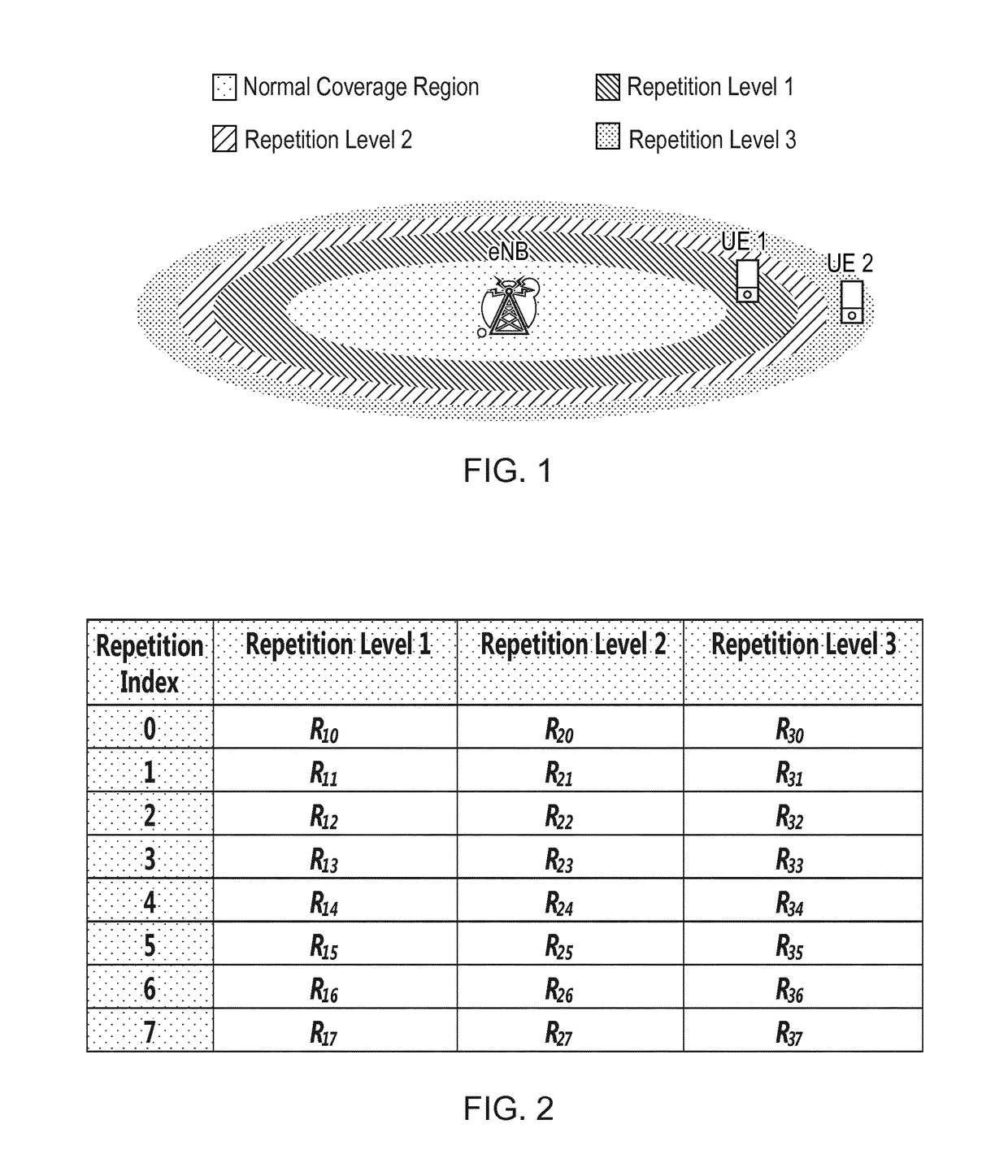Communication techniques
a communication technique and communication technology, applied in the field of communication techniques, can solve the problems of user equipment being effectively unable to receive traffic from a base station, being deployed in areas suffering from very high attenuation, etc., to achieve the effect of increasing throughput, increasing reliability of communication, and increasing throughpu
- Summary
- Abstract
- Description
- Claims
- Application Information
AI Technical Summary
Benefits of technology
Problems solved by technology
Method used
Image
Examples
example 1
[0080]If it is assumed that in one implementation:[0081]1) DCI Format 0 and DCI Format 1A are the only two DCIs used by CE-MTC UE;[0082]2) There are three repetition levels that can be configured at an eNB; and[0083]3) 4 bits are required for MCS for CE-MTC UE.
[0084]In some systems, 5 bits are used for MCS signalling and 2 bits are used for power control commands in a DCI in downlink control information signalling. Since in the example given 4 bits are used for signalling MCS, the total “free” bits remaining to indicate repetition index are 3, which allows such a system to report 8 repetition indices which can be related to 8 different repetition levels.
[0085]FIG. 2 illustrates schematically a repetition index scheme for implementing one possible set of repetition levels. In the example shown in Table 2, a repetition index is indicated in the DCI and the repetition level is configured by an e-node B. An absolute number of repetitions Rjk can therefore be found by knowing the repetit...
PUM
 Login to View More
Login to View More Abstract
Description
Claims
Application Information
 Login to View More
Login to View More - R&D
- Intellectual Property
- Life Sciences
- Materials
- Tech Scout
- Unparalleled Data Quality
- Higher Quality Content
- 60% Fewer Hallucinations
Browse by: Latest US Patents, China's latest patents, Technical Efficacy Thesaurus, Application Domain, Technology Topic, Popular Technical Reports.
© 2025 PatSnap. All rights reserved.Legal|Privacy policy|Modern Slavery Act Transparency Statement|Sitemap|About US| Contact US: help@patsnap.com


